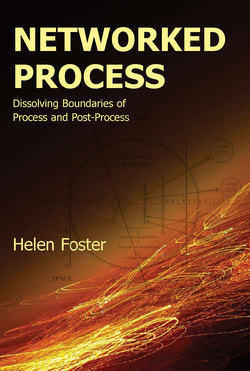Networked Process

Реклама. ООО «ЛитРес», ИНН: 7719571260.
Оглавление
Helen Foster. Networked Process
Отрывок из книги
Lauer Series in Rhetoric and Composition
Series Editors, Catherine Hobbs and Patricia Sullivan
.....
From a disciplinary perspective, Petraglia critiques the close association of process with the behaviorist model in psychology. Process theorists argued against a notion of writing as a single behavior and for a notion constituted by procedures and strategies that eventually coalesced into the complex system of process. This understanding then established a professional agenda that both resonated with the notion of rhetoric as practical art (techne) and propelled research and teaching. It rendered other methodologies viable, especially those including a scientific analytic component, which contributed, Petraglia argues, (1) to serve composition well as a field “dedicated to the production of rhetorical skills”; and (2) to “[discipline] writing in every sense of the word,” imposing a coherence on lore (North) and providing “a catechistic structure through which writing could attain a distinct academic identity” (“Is There” 51). Cognitive models of process greatly contributed to the development of “a genuinely academic profile” that ultimately became the movement’s “Manifest Destiny” (51). However, the empirical method objectified writing process and continued he says, a two-millennia tradition of “dissecting and redissecting the whole of rhetoric into manageable parts” (53). Thus, Petraglia argues that the current professional profile of the field remains entrenched in the impoverished pedagogy of GWSI.
Others also take process to task for its privileging of individuality. David Russell credits process with enacting an important shift from text to the individual writer, thus effectively rendering the student an object of study. The problem, he argues, is that process “remained with the individual” and attempted to generalize psychological processes across a broad range of students and settings (“Activity Theory and Process” 80). Along with this, process altered teacher/student relationships, but then exerted a normative influence on them. Teachers were taught, Russell says, to intervene strategically in students’ process, using a normative process vocabulary to guide not only their verbal interaction with students but also their written responses and final evaluations. This pedagogy assumed that the stages of student writing constituted “legitimate stages of work in progress rather than failed attempts to produce a correct product”; teachers then responded with “transactional in-progress comments [. . .] rather than evaluative ‘final’ judgments” (150). Russell concludes, however, that the shifts made by process contributed to disciplinary legitimacy. These shifts provided English departments leverage to successfully bid for additional institutional resources, and they allowed some writing programs to successfully argue for separation from English departments, based on a body of knowledge created through strong research agendas and newly minted graduate programs.
.....